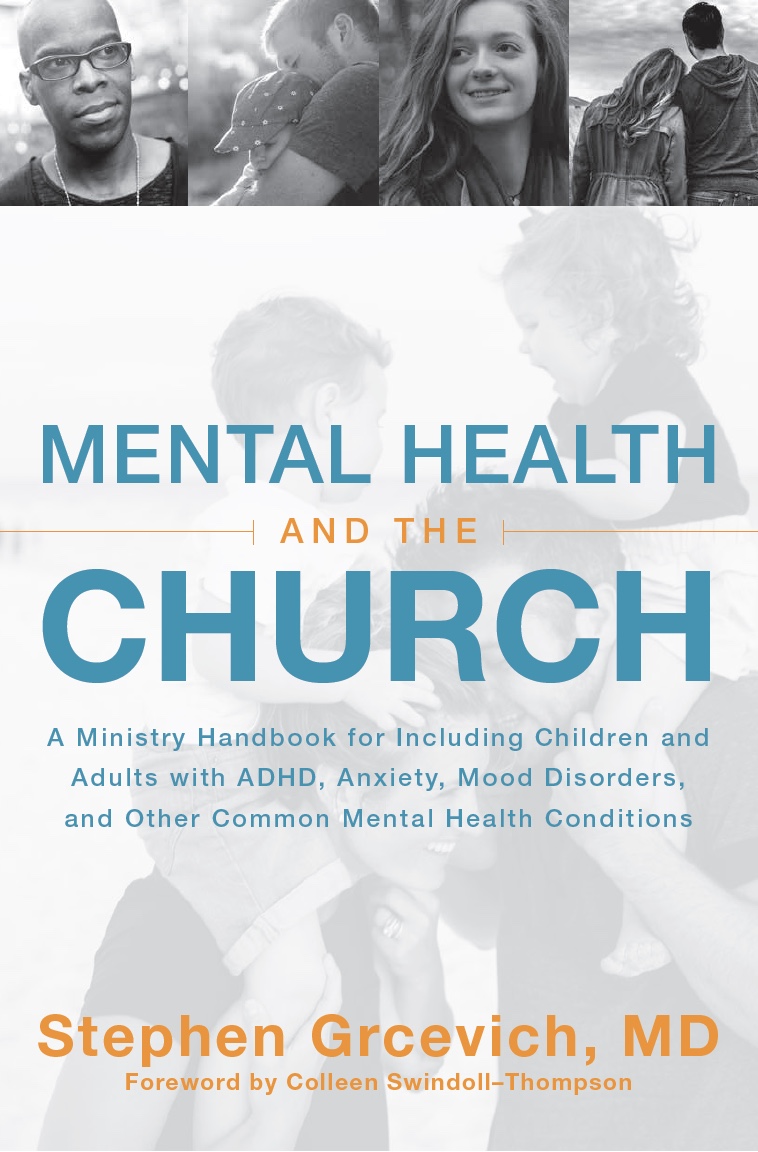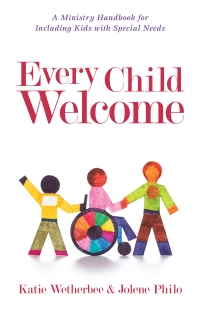 This is the tenth post in our Fall series When Kids Become Aggressive at Church. Today, we’ll look at the question of whether it’s ever appropriate for ministry leaders to encourage parents not to bring their child or teen to worship services or church activities because of their history of aggressive behavior.
This is the tenth post in our Fall series When Kids Become Aggressive at Church. Today, we’ll look at the question of whether it’s ever appropriate for ministry leaders to encourage parents not to bring their child or teen to worship services or church activities because of their history of aggressive behavior.
Where in the Great Commission or the New Testament does it say anything about a requirement that all followers of Christ keep the Sabbath by being physically present inside an identified church building for worship or instruction?
In my humble opinion, no children’s ministry or youth ministry is going to be able to successfully include 100% of kids with disabilities 100% of the time. Our team at Key Ministry would certainly encourage churches to attempt to include as many kids and teens with as broad a range of disabilities as possible into as much of their age and developmentally appropriate worship and church programming as they possibly can. But there will be kids who will have times when participation in activities at church doesn’t represent the “least restrictive environment” for that child to grow as a follower of Christ. Kids with a history of severe aggressive behavior may fall into this category.
So when should kids at risk for severe aggression be asked to stay home? Schools have guidelines for parents about when they should keep children home to prevent other kids from getting sick. When are other kids, church staff and volunteers at risk of being harmed by kids prone to aggression?
- If the parent(s) can’t manage the child’s behavior safely at home
- When a foreseeable event has transpired at home (changes/lapses in medication used to control aggressive behavior, marked escalation of behavior while transitioning/preparing to leave for church) or at church (changes from the norm in environment/availability of appropriately trained staff or volunteers familiar to the child) increasing the child’s risk of aggressive behavior.
The church isn’t off the hook for its’ responsibility to help the child and their family to come to faith or grow in faith. What can (and should) the congregation do to support the rest of the family in attending church and participating in activities vital to spiritual growth?
- Could the church provide relational respite in the child’s home to allow the adults in the family to attend worship or participate in other activities? If the child’s needs are severe enough, what about paying for specially trained, in-home child care providers?
- Could the church schedule activities (small groups, Bible studies, service opportunities) during times of day/seasons of the year when the needs of the child at risk of severe aggression are being met through the educational system?
- Can the church arrange for transportation for the other children in the home to attend age-appropriate programming on Sunday…and during the week?
- Can the church become a resource provider to parents of tools to support them in their role as primary faith trainer of their children…with and without special needs?
- Can the church be intentional about creating ministry environments that support the child at risk of aggressive behavior in participating in as many activities as possible as often as possible?
Updated August 8, 2014
***********************************************************************************************************
 Key Ministry is pleased to make available our FREE consultation service to pastors, church leaders and ministry volunteers. Got questions about launching a ministry that you can’t answer…here we are! Have a kid you’re struggling to serve? Contact us! Want to kick around a problem with someone who’s “been there and done that?” Click here to submit a request!
Key Ministry is pleased to make available our FREE consultation service to pastors, church leaders and ministry volunteers. Got questions about launching a ministry that you can’t answer…here we are! Have a kid you’re struggling to serve? Contact us! Want to kick around a problem with someone who’s “been there and done that?” Click here to submit a request!





Thanks for your willingness to tackle a tough issue, Steve! While there may not be easy answers to this challenge, you provoke leaders to think about the spiritual growth of such families rather than writing them off. If we truly believe that through Christ all things are possible, thinking outside the box is a terrific place to begin!
LikeLike
I appreciate this too. When we attended a larger church, there was a teen that I and other parents felt was dangerous – escalating behaviors, parental indifference (probably related to fatigue), resistant to all interventions. The situation was so bad that several parents stopped sending their kids to teen activities/Sunday school for safety reasons. Personally, I believe he was severely personality disordered but I’m no expert 🙂 The leadership felt impotent and just allowed him to take over the place – sad for many other children whose spiritual growth was sacrificed…
This mother was desperate for community but the community did not feel safe. No easy answers for sure.
LikeLike
Amy,
Thanks for your post! I think we ought to try to include every kid we can in every activity at church whenever we can. But it’s not fair to the child or to their parents to put them in a situation where they can’t be safe. One consideration in determining the “least restrictive environment” for a child with a disability is the effect the student with a disability can have on the teacher and his or her peers.
I had a patient when I was working in residential treatment who put eight trained, adult staff on disability leave at one time. You raise a great point in that kids aren’t going to be able to learn in situations where they don’t feel safe.
I’d also add that EVERY child and EVERY family needs to be welcomed into the church body and needs to have the opportunity to hear the Gospel, be discipled and to use their gifts to serve. But aren’t we narrowing our options to say that has to occur for every child inside the same building? What if their church family comes to their home?
LikeLike
Barb,
Thanks for your comment…I think this is an area in which God is challenging us to step beyond our comfort level…a classic example of a situation when the church can and should “leave the building.” Many families of kids with disabilities are desperate for relationships-and the church can offer them the ultimate relationship and a caring community of brothers and sisters in Christ.
As we discussed in the Tweet Chat the other night, to reach families no one else is reaching we’ll need to try stuff no one else is trying. We know from serving kids with special needs in educational settings that most kids do best in an inclusion model, a few kids require specialized schools and some kids flourish in home school environments. Why would that be different when we’re teaching them about Jesus?
LikeLike
Thank you for your thoughtful comments – difficult situations but never (I hope) obstacles that we can’t overcome. I’m grateful for the discussion. I have found few people really want to take apart these type of challenges because of their complexity, lack of expertise – or perhaps fear?
LikeLike
Steve, thank you for this very thought provoking post.
LikeLike
Love the specific practical steps to work with a difficult problem related to families we as the church need to minister to but just have to find the way to do so effectively for all concerned!
LikeLike
Thank you for these insightful questions, and may the good Lord bless you in and for your ministry!
LikeLike